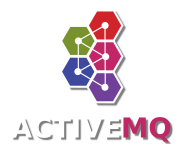Features Overview
- Supports a variety of Cross Language Clients and Protocols from Java, C, C++, C#, Ruby, Perl, Python, PHP
- OpenWire for high performance clients in Java, C, C++, C#
- Stomp support so that clients can be written easily in C, Ruby, Perl, Python, PHP, ActionScript/Flash, Smalltalk to talk to ActiveMQ Classic as well as any other popular Message Broker
- AMQP v1.0 support
- MQTT v3.1 support allowing for connections in an IoT environment.
- full support for the Enterprise Integration Patterns both in the JMS client and the Message Broker
- Supports many advanced features such as Message Groups, Virtual Destinations, Wildcards and Composite Destinations
- Fully supports JMS 1.1 and J2EE 1.4 with support for transient, persistent, transactional and XA messaging
- Spring Support so that ActiveMQ Classic can be easily embedded into Spring applications and configured using Spring’s XML configuration mechanism
- Tested inside popular J2EE servers such as TomEE, Geronimo, JBoss, GlassFish and WebLogic
- Includes JCA 1.5 resource adaptors for inbound & outbound messaging so that ActiveMQ Classic should auto-deploy in any J2EE 1.4 compliant server
- Supports pluggable transport protocols such as in-VM, TCP, SSL, NIO, UDP, multicast, JGroups and JXTA transports
- Supports very fast persistence using JDBC along with a high performance journal
- Designed for high performance clustering, client-server, peer based communication
- REST API to provide technology agnostic and language neutral web based API to messaging
- Ajax to support web streaming support to web browsers using pure DHTML, allowing web browsers to be part of the messaging fabric
- CXF and Axis Support so that ActiveMQ Classic can be easily dropped into either of these web service stacks to provide reliable messaging
- Can be used as an in memory JMS provider, ideal for unit testing JMS

